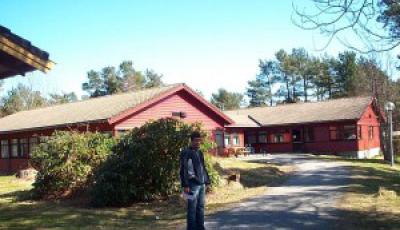Guest post by Nicolay B. Johansen, Postdoctoral Research Fellow at the Department for Criminology and Sociology of Law, University of Oslo. In this post, Nicolay discusses his ERC-funded study of social marginality in Norway.
Insiders Outside/Outsiders Inside (IOOI) is a comparative study of social control in Norway. In it, I explore a range of control strategies directed at irregular migrants and drug addicts in order to better understand the relevance of citizenship in the governance of social marginality. Unlike traditional studies of control that tend to focus on repressive measures such as punishment, deportation, incarceration, and exclusion, IOOI takes a broader perspective, exploring how irregular migrants are manipulated by wider set of social institutions. The control of migrants is seen as an administrative practice, not merely as repression.
The aim of the study is to make a sketch of the total framing of the life situations of marginalized populations: the ‘control situation.’ Using this phrase, the project builds on a phenomenological perspective. True, there is much information to be found just by talking to irregular migrants and getting them to discuss how they get along on their ‘daily rounds’ (to use Goffman’s term). Such an approach would disclose the practical impact of different institutions have on their lives. But IOOI is not a phenomenological study. Although I do interview irregular migrants, this project does not follow a consistent phenomenological pattern with an independent exploration of the life situation of irregular migrants. The construction of a control situation is based on a broader reading of research and reports from the field (i.e., biographical presentations, NGO reports, and empirical studies). Thus, the focal point of IOOI is a limited aspect of migration control.
Key aspects of Insiders Outside/Outsiders Inside: 1. The empirical basis of IOOI is a study of the legal framework and institutions enveloping the lives of irregular migrants. Social welfare regulations, health care, authorities controlling work relations, liquor license authorities, taxation, immigration authorities, and the police constitute main parts of the framework. A corresponding analysis is made for drug addicts. 2. Since detailed scrutiny of the life situations of irregular migrants would be too resource demanding for the project, I have focused on a specific site of control: asylum centres. More than one hundred such centres are in operation in Norway in 2013, with a total of 18 000 beds. |
Unlike closed detention centres, asylum centres are neither a part of the formal control regime nor simply places of dwelling. At present, about one in three inhabitants in asylum centres are irregular migrants. Many are refused asylum seekers whom the authorities are unable to deport. For the authorities, asylum centres are the last resort option for shelter and basic provision of food for irregular migrants. The centres are commonly understood as part of the border. Although set up primarily as housing facilities, the authorities demand that the employees in the centres make so-called ‘return-work’ (e.g., various motivational and practical activities directed at facilitating return) central to their daily activities.
For the IOOI study, I’m visiting several of these institutions. I’m talking to those who stay there, participating in daily routines especially where employees and inhabitants meet, and interviewing employees. An emerging pattern suggests that asylum centres as institutions embody a kind of resignation that pervades the political field as a whole. As such, control of irregular migrants seems to illuminate paradoxes inherent in liberal border politics.

Further details about this research project can be found in Nicolay’s chapter, ‘Governing the Funnel of Expulsion: Agamben, the Dynamics of Force, and Minimalist Biopolitics’ in K.F. Aas and M. Bosworth (eds.) The Borders of Punishment: Migration, Citizenship and Social Exclusion. Oxford: Oxford University Press, 2014.
Want to discuss this topic? Post a comment here or on our Facebook page. You can also tweet us.
Share:









